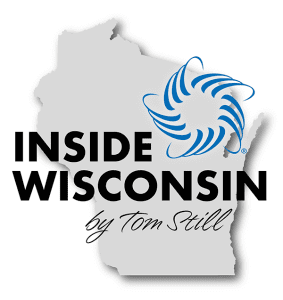By Tom Still
 MADISON, Wis. – Health care in Wisconsin is suffering from a serious case of “long COVID.” Not so much the disease itself, although it’s on the rise again, but how the lingering effects of the pandemic are challenging systems that deliver care.
MADISON, Wis. – Health care in Wisconsin is suffering from a serious case of “long COVID.” Not so much the disease itself, although it’s on the rise again, but how the lingering effects of the pandemic are challenging systems that deliver care.
Burnout and retirements have taken their toll on the workforce, hospital admission rates haven’t fully recovered from pandemic lows, costs have risen, reimbursements are generally stagnant and public policy hasn’t kept up with the changed reality.
The challenges appear most critical in rural Wisconsin, where the combination of older populations and lower incomes have made a tough situation even worse.
That’s part of what happened this month in western Wisconsin, where the announced closing of two Hospital Sisters Health Systems facilities as well as the related Prevea Health physician network has shocked the Chippewa Valley community.
More than 1,400 people at Sacred Heart Hospital in Eau Claire and St. Joseph’s Hospital in Chippewa Falls will be out of work by the time the closings conclude in April. By then if not before, thousands of people won’t have access to health care from hospitals that had been a part of the community for 135 years. For example, Sacred Heart alone delivers about 700 babies per year.
Gov. Tony Evers expressed his dismay over the closings and the lack of advance notice to HSHS and Prevea employees. During his State of the State speech, Evers also announced creation of a Governor’s Task Force on the Healthcare Workforce to address ways to recruit and retain healthcare workers in Wisconsin, especially nurses.
Evers has repeatedly asked why the Legislature won’t approve expansion of the Medicaid program in Wisconsin, which 40 states have done in recent years – including all of Wisconsin’s neighbors.
Medicaid is a joint federal-state program that helps cover medical costs for some people with limited income. All states must follow general federal rules, but each state runs its own program. This means eligibility requirements and benefits can vary from state to state.
Republicans such as Assembly Speaker Robin Vos oppose expansion of Medicaid (called BadgerCare Plus in Wisconsin), saying most poor citizens are already covered in other ways – including Obamacare, which enrolls about 221,000 people in Wisconsin. He argues accepting more federal dollars would eventually increase spending in what is already one of the state’s biggest budget lines.
Healthcare system stress is not just confined to Wisconsin, however, and the lack of Medicaid expansion is not the only issue.
In the Chippewa Valley, a task force that includes a mix of business, healthcare, government and education leaders is asking what to do next close to home within the context of a broader national issue.
In addition to “long COVID” symptoms such as workforce shortages, contributing factors include hospitals not getting reimbursed for actual costs, for-profit competition to non-profit hospitals through specialty care centers, and even practices such as “white bagging.”
White-bagging is a drug distribution model that critics claim undermines hospital patient safety protections by allowing insurers, rather than the patient’s pharmacist and healthcare provider, to determine when, where, and how drugs are purchased, prepared and administered.
Eric Borgerding, president of the Wisconsin Hospital Association, recently told WEAU-TV in Eau Claire that the “payer mix” for the HSHS hospitals was poor, with about two-thirds coming from government sources that don’t even cover the basic cost of care.
Wisconsin is not alone in seeing such pressure, especially on smaller hospitals and healthcare systems that must deliver critical care but don’t always get enough revenue to provide it. More than 600 rural U.S. hospitals are at risk of closing soon, according to the Center for Healthcare Quality & Payment Reform. Nine rural hospitals closed in 2023, the center recently reported.
Health care is an intensely complicated industry that must strike a balance between providing quality care and making enough money to be around for the long run. It is tempting to point specific fingers of blame, but comprehensive solutions are rarely that easy.
Still is president of the Wisconsin Technology Council. He can be reached at tstill@wisconsintechnologycouncil.com.



